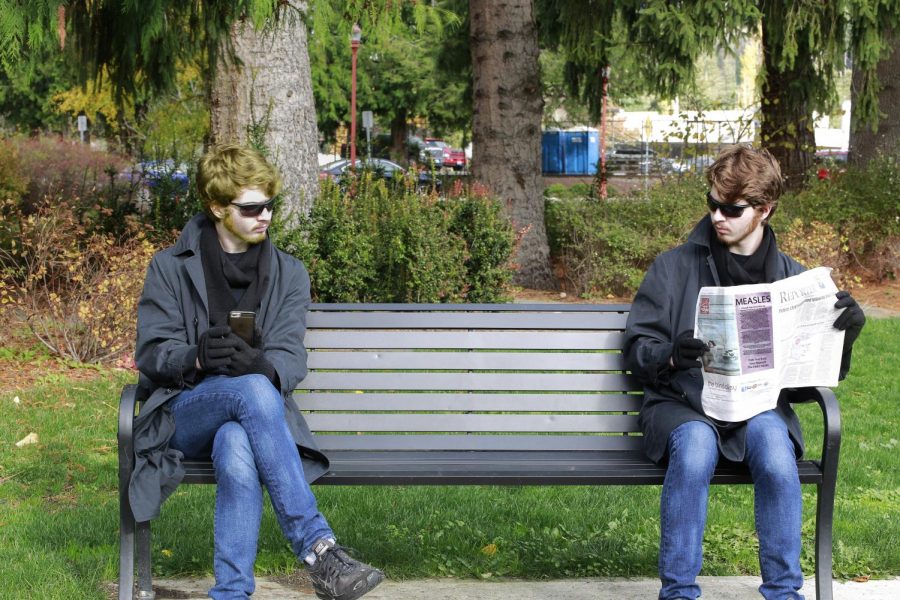Measles Outbreak Reaches Issaquah High School
EXTRA CAUTION FOR MEASLES: Issaquah High School staff and students were especially cautious about spreading germs due to the measles outbreak and made sure stay on the safe side until the outbreak had safely subsided
June 11, 2019
Recently, the measles virus has reemerged and has usually been taking footholds in small communities where there are many unvaccinated individuals. There were many cases in New York and one closer to home in Clark County, Washington, which is just north of Portland. This outbreak in Washington lead Governor Inslee to declare a state of emergency after there were 55 confirmed cases of measles in the state, most of the cases being children under the age of 10. Now, there are 81 confirmed cases in Washington. In the case of Clark County, the outbreak could have been easily preventable, given the county had a very low immunization rate. This is likely because of many parents choosing not to vaccinate their children for personal reasons as most of the cases were children.
The most recent outbreak in Washington was the case at Issaquah High School that caused the school to close for a day to check for immunization. Staff and students that could not provide proof of immunization had to stay home for weeks to avoid them catching measles or spreading it if they had already contracted it. Sophomore Connor Williams said, “[His] friend had to stay away from school from school for several weeks.” Measles is usually a pretty harmless virus, but is very contagious as the virus can stay live for two hours after the infected person has left. The measles rash usually takes about 14 days to start after contracting the virus and then lasts about five to six days. Even after the virus symptoms have gone away the virus can still be spread to others for four days. Even some students at Issaquah who were vaccinated were still worried about contracting the virus. Junior Beverly Vazquez stated that “even though I already have a vaccine, someone I know could get the virus and I could still get it even if I’m vaccinated.” While the likelihood of getting measles even if vaccinated is low, it is definitely possible. The CDC reports that about three out of 100 people who have two doses of the vaccine will still get measles if exposed to the virus. However, the individuals will have a more mild illness and will be less contagious.
Like with most things, there is a lot of misinformation that is spread regarding measles. Senior Akhil Joshi reported, “A teacher of mine said there is a 30 percent chance of getting measles when vaccinated when actually three percent could get the disease.” However, the bigger problem with misinformation about measles is the information regarding vaccination. Many believe that vaccines can cause all sorts of health problems like autism, so they use alternative methods that have not been scientifically approved to protect their child. Freshman Ella Wolf said that “it’s their choice not to get vaccinated, but they shouldn’t affect others and make it so other get sick.” Many of the outbreaks could be easily prevented if more people decided to get vaccinated. However, it is not as easy to persuade everyone get vaccinated. While the most widely known is the anti-vax movement others decide not to get vaccinated for religious reasons or because legitimate health concerns. Certain health conditions like some types of cancer can compromise the immune system and make it that it is so weak that an individual can get measles from a vaccination. Because of these legitimate reasons for not getting vaccinated it is all the more important that those who can get vaccinated do so to protect themselves and those who can’t get vaccinated.



